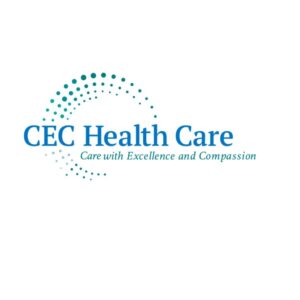Mental Health Clinics Long Island NY – CEC Health Center
The CEC Health Center (CEC) is a Federally Qualified Health Center (FQHC)* that provides integrated healthcare services at its Bethpage, Hauppauge and now Glen Cove locations. We provide care with excellence and compassion to historically underserved community members with limited incomes including those with autism, learning and developmental disabilities, and behavioral health concerns. We serve as one of the top mental health clinics on Long Island NY.
We focus on preventative healthcare to ensure healthy lifestyles and to minimize trips to hospital emergency rooms. CEC services are available to all community members and accepts Medicare, Medicaid, Medicaid Managed Care, and private insurance plans.

Our physicians and support staff are bi-lingual in English and Spanish and other interpreters are provided according to need.
The specific services offered at the CEC Health Center Mental Health Clinics Long Island NY include:
- Adult and Pediatric Medicine
- Dental
- Women’s Health (Gynecololgy)
- Behavioral Health (Mental Health and Chemical Dependency Services)
- Neurology
- Podiatry
- Psychology
- Social Work
- Assertive Community Treatment (ACT)
- Mental Health Housing
- Case Management
- Transportation

CEC recently merged with the Melillo Center for Mental Health in Glen Cove, a health center with over 40 years of experience serving the community in the heart of Glen Cove. Renamed CEC at Glen Cove, the Center will continue to provide supports that include mental health clinic, outpatient chemical dependency outpatient services, assertive community treatment (ACT), supervised community residences, supported housing and respite housing Mental Health Clinics Long Island NY.
The CEC Health Center is licensed by the NYS Department of Health, the NYS Office of Mental Health and the NYS Office of Addiction Services and Supports and is supported by Nassau County Department of Human Services.
Neurologists are specialized physicians that can diagnose and treat issues involving your brain and nervous system. As a multidisciplinary healthcare facility, the CEC Health Center a Mental Health Clinics Long Island NY, recognizes the importance of having a trained neurologist as a member of our team. Issues with the brain and nervous system can be difficult to manage for some patients, but you won’t have to do it alone. To learn more about the common conditions that can be treated by a neurologist, please visit our website or contact us for more information.

Some Services
- Family Medicine
- Women’s Health/Gynecology
- Neurology
- Dentistry
- Podiatry
- Desensitization Programs
- Behavioral and Mental Health
- Psychiatry
- Individual Counseling
- Psychological Testing
- Psychosocial
For patients who find that visiting the doctor or dentist can be a fear and anxiety-producing experience, CEC Mental Health Clinics Long Island NY, has created Social Scripts to help prepare for your next visit. Select the appropriate visit from the list below to see what you can expect to see on your next scheduled appointment.
What Are The Five Developmental Disabilities? 
Developmental disabilities are conditions due to an impairment in learning, behavioral, physical, or language areas. Many people have one or more developmental disabilities or delays. Five developmental disabilities that are often seen are ADHD, ASD, cerebral palsy down syndrome, and Tourette syndrome. If you are looking for Mental Health Clinics Long Island NY, the CEC Health Center can help.
Attention Deficit/Hyperactivity Disorder (ADHD)
ADHD is a very common neurodevelopmental disorder that is diagnosed in childhood and often carries on through adulthood. Individuals with ADHD typically have a hard time paying attention, being too active, or controlling impulses. ADHD can cause a lot of issues in a person’s life, affecting their work performance, school, or interpersonal relationships. Typically discovered during childhood, symptoms of ADHD in children include:
- Forgetfulness or the tendency to lose things.
- Fidgeting.
- Talking too much.
- Difficulty working with others.
- Trouble concentrating.
There are actually three types of ADHD. Predominantly inattentive presentation is the type where it is hard for the individual to stay organized and finish tasks. The individual might get easily distracted. Predominantly hyperactive-impulsive presentation is where the individual talks and fidgets a lot. This person might have a hard time sitting still for an extended period, and often might feel restless and impulsive. This person might also have a hard time waiting their turn and can speak at inappropriate times. The combined presentation is where symptoms of the previous two types are equally present. Presentation can also change over time. Most of the time, ADHD is best treated with a combination of behavioral therapy and medication. If you are looking for ADHD treatment, there are Mental Health Clinics Long Island NY.
Autism Spectrum Disorder
Autism Spectrum Disorder (ASD) is a development condition that affects how a person socializes, and can cause problems with communication and socialization. The word “spectrum” in autism spectrum disorders refers to the differences in symptoms and their severity. ASD includes conditions such as autism, Asperger’s syndrome, pervasive developmental disorder, and childhood disintegrative disorder. Though the term “Asperger’s syndrome” is no longer widely used, it is on the more mild end of the spectrum. ASD typically begins in early childhood, but some children appear to be developing normally in the first year, and gradually develop autism symptoms between the ages of 18 and 24 months. Signs of ASD are usually seen at around 2 years of age. Individuals with ASD typically have a unique pattern of behavior and varying severity levels. Some of the signs and symptoms include:
- Does not respond to their name, or does not appear to hear you.
- Resists affection, prefers to play alone.
- Lack of eye contact or facial expression.
- Delayed speech, or no speech.
- Repeats words or phrases, but does not understand their use.
- Trouble understanding nonverbal social cues.
While there is no cure for ASD, Mental Health Clinics Long Island NY can lend their treatment services, which can make a big difference in a child or adult’s life.
Cerebral Palsy
Cerebral palsy is the most common motor disability caused by abnormal brain development that affects a person’s muscle control. The symptoms and severity of cerebral palsy vary among individuals. A severe case of cerebral palsy might cause a person to not be able to walk, or require equipment to help them walk. A person with mild cerebral palsy might have trouble walking normally, but might not need special care. Cerebral palsy does not worsen over time, but symptoms can change. All people that have cerebral palsy have posture and movement problems. A lot of people may also have seizures, intellectual disability, or joint problems. The signs of cerebral palsy are different for many individuals as there are many types and levels of the disability. The clearest sign that indicates cerebral palsy is the delay in reaching movement or motor milestones. There is no cure for cerebral palsy, but treatment can help improve the lives of those who have the condition, and treatment should begin as early as possible. The Mental Health Clinics Long Island NY can work with you and your family to come up with a treatment plan that best suits your needs.
Down Syndrome
Down syndrome is the most common chromosomal condition that occurs when a person has an extra copy of chromosome 21. Down syndrome can be diagnosed before or at birth. Prenatal screenings estimate the chances of Down syndrome in the fetus. Diagnostic tests provide a definitive diagnosis. At birth, Down syndrome is identified by the presence of these physical traits:
- Upward slant to the eyes.
- Flattened profile.
- Low muscle tone.
- Small hands and feet, and a crease across the palm.
While Down syndrome is a lifelong condition, starting treatment at an early age can help improve a person’s intellectual ability and physicality. Services like occupational and speech therapy can also help people with Down syndrome reach their full potential.
Tourette Syndrome
Tourette syndrome is a condition that includes unwanted sounds or repetitive movements that are not easily controlled. A person with Tourette syndrome might make unusual sounds or movements. They might also repeatedly blink or make other involuntary movements. The clearest symptom of Tourette syndrome are the tics. They can range from being mild to severe.
Each individual with Tourettes may show symptoms in different ways as each case is unique to the person that suffers. There are not always defining characteristics that a person with Tourettes may carry. Often times tics can be subtle and unnoticeable to many. A common misconception of this disorder involves the idea that people who suffer may blurt out vulgar or obscene words or sentences which is not the case. An individual with mild Tourettes’ close friends or family may be the only ones who notice symptoms.
Tics are classified into two categories, simple tics, and complex tics. Simple tics are sudden and brief, and they involve less muscle groups. Complex tics are coordinated movement patterns that involve many muscle groups. Common motor tics include:
- Blinking
- Shrugging
- Nose twitch
- Touching objects
- Stepping in a pattern
Common vocal tics include:
- Grunting
- Throat clearing
- Repeating words or phrases
In addition, tics vary in their frequency and may worsen if you are anxious or excited. They can also worsen during early teenage years, and improve as the individual transitions into adulthood. Before the onset of tics, the individual will likely experience an uncomfortable urge, and expressing the tic will bring them relief. Treatment for Tourette syndrome is aimed at controlling tics that interfere with life. Medication is also used to help control tics. Behavioral therapy can also help an individual affected by Tourette syndrome. While there is no cure, combined treatment can improve symptoms.
Mental Health Clinics Long Island NY
If you or someone you know is affected by any of the disabilities mentioned, CEC Health Center can help guide you and give you the appropriate care. Our goal is to provide you with the highest quality care possible with our patient-centered approach. Call to schedule your appointment today!
The Importance Of Preventative Care

As we age, it becomes easy to cut corners when it comes to our health. However, the importance of visiting your physician once per year or more as directed cannot be understated. At CEC Health Center, Mental Health Clinics Long Island NY are a multidisciplinary facility committed to providing excellent and affordable care to the traditionally underserved members of the community. We emphasize the importance of preventative medicine to help our patients live long and healthy lives.
Types Of Routine Exams:
Many aspects go into a person’s health. As a multidisciplinary healthcare facility, our team understands this better than most. This is why CEC Health Center, Mental Health Clinics Long Island NY is committed to providing our patients access to the vital medical examinations needed to keep them healthy. Below are a few examples of the routine exams we offer, and what the practitioner does during them to allow for preventative care to be administered.
Physical Exam:
- Take a brief look at your medical history and lifestyle behaviors.
- Check your vitals, which include your heart rate, blood pressure, and body temperature.
- Perform heart and lung exams.
- Administer various other health-related tests.

Dental Exam/Cleaning:
- Examine your tongue, gums, cheeks, and teeth.
- Perform X-rays to determine any misalignment issues or impacted teeth.
- Call-out any cavities and schedule an appointment to have them filled to fight against tooth decay.
- Thoroughly clean your teeth and gums to remove any plaque or tartar to prevent gum disease.
Gynecological Exam:
- Ask questions about your menstrual cycle, sexual activity, and any health changes that have occurred since your last visit.
- Perform a pap smear to check for cervical cancer, HPV, and other abnormalities.
- Administer pelvic exam to check for STDs and vaginal issues.
- Examine your reproductive organs for complications that may arise during a potential pregnancy.
A Focus On Prevention:
For any medical condition you may face, the best treatment plans will always begin with prevention. It is always one of the main goals we’ll focus on during any medical examination. After making a full evaluation of your health, we will provide medical advice and treatment for any issues that need to be resolved. Examples of advice that may be given includes:
- Eating more fruits and vegetables and less processed foods.

- Going for a thirty-minute walk each day.
- Perform strength training at least twice a week.
- Cutting back on smoking or consuming alcohol, if you do so.
- Increasing your focus on brushing and flossing your teeth.
- Visiting your medical provider more often.
Why Preventative Care Is Important:
While many people attribute illness with having unmissable symptoms, this is not always the case. For many people, symptoms for dangerous illnesses/conditions may lay dormant for weeks or months before presenting themselves. By the time of their arrival, treatment will be more difficult than it would have been if caught earlier. That is why you must always focus on scheduling and attending routine medical exams. By doing so, our doctors can catch ailments before they reach a serious state. Early detection allows our doctors to offer swift treatment, and provide advice on making changes to your lifestyle that prevents illnesses from reoccurring.
CEC Health Center, Mental Health Clinics Long Island NY
At CEC Health Center, our team understands how important it is for the entire community to have easy access to healthcare services. That is why we are committed to providing preventative healthcare to those who need help. If you or a loved one is due for a wellness visit and would like to meet with our team, be sure to contact us today!
